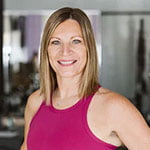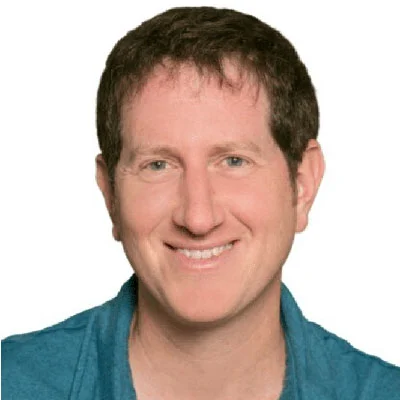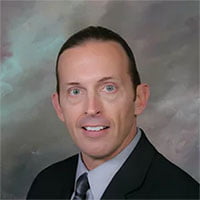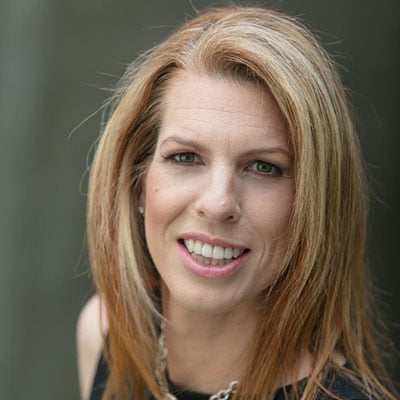Kevin Stafford 0:00
Hello, everyone, and welcome to another episode of the conversations with coaches podcast. I’m your host, Kevin and I have already been having the beginnings of a delightful conversation with Kathy hesita. She’s, well, you’re about to see I’m already quite my heart is quite warm to get to know her. She has a lovely, lovely smile and lovely demeanor. And I’m just I’m really, really, really excited to get to talk to her about, well, everything that we can squeeze into about 15 or 20 minutes. So let me give you a little bit of a of a taste of what she’s all about. Kathy is a former global technology executive who founded the heart mind tuning Corporation. Based on her corporate experiences success in developing fearless leaders, and tenure in coaching and mindfulness practices. She founded this coaching agency to help leaders in tech achieve their full potential and to support organizations in adopting mindful leadership practices. There’s obviously a lot in there, I love the I love both the focus and the breadth of that as kind of a statement of your mission. So Kathy, thank you for taking some time with me today. And I’m excited to get to know you a little bit better.
Kathy Hadizadeh 1:02
Thank you for having me, Kevin. And I would love to answer any questions.
Kevin Stafford 1:06
Well, let’s, let’s take you back to the beginning, not the beginning, beginning not like you know when you know, your, the day of your birth or whatever. But let’s take you back to the beginning of what I sometimes like to call your superhero origin story. How did you? And this happens differently, slightly differently for a lot of coaches, how did you discover realize, when were you told by a key mentor or a leader in your own life, that coaching was the way forward for you that some sort of commitment to coaching was the way that you wanted to impact the world to serve people to be of service and to just exist in to live? How did you how did you discover that about yourself or realize that about yourself?
Kathy Hadizadeh 1:47
Okay, first of all, how much time we’ve got a question. But to give you a kind of a condensed version was, I didn’t know anything about coaching. I knew a lot about mentoring, because I was a mentor since the time I started that corporate America. And I had mentors all along the way. But I did not know anything about coaching. Now, fast forward to 2015 or 2013, when I went to direct TV, and there was something going on in there. That was very fascinating for me, the CIO of the organization at that time, Mike Benson had come up with this idea of having a fearless IT organization. And I was very curious, when I joined thinking, what does that mean? I was thinking I’m fearless.
Speaker 3 2:43
And God, I was so wrong
Kathy Hadizadeh 2:51
was designed to make me realize, no, you have maybe more fears and a lot of other people in the world or equal them something like that. Who can tell us really. But that program was really a beginning for me to understand how much I was holding myself back and how much programming was in me, that was in me since the birth if we are not going to the time, but I was programmed. Since the beginning in a certain culture it is with certain experiences. And it was just a tip of the iceberg. And I was like, hey, there is another way of living and looking at the world. But they did not explore completely what that would look like it was just this aha moment of do something else to what you have always believed to be true. That was just the beginning. And the story is that two, three years after that, I was in a very difficult situation because I had a really big health challenge. And I had a birthday. But I couldn’t really attend the birthday because I was in a very bad condition. So we had it for birth for breakfast. I had a brain injury and my brain would get tired. So beginning of the year was the was the only time that they could function for a little bit. So we had people coming for birthday for breakfast. And what are my friend told my husband, she gave Kathy a coach. And I didn’t know what really that is. And I couldn’t look at this screen at that time because of that injury. So I had no way of communicating with the outside world. So I told my husband at night, can you go and figure out what is this coach thing that he said? He went and googled and funny enough, he went and found international coaching Federation and the last chapter and he brought the web site page. And then he said, I think you know this Add. And I was like, Who do I know? And I looked, Kevin, and I knew the president of ICF, Los Angeles. At that time, which I didn’t even know that she is a coach, or whatever the story was, I just knew the face. Our kids went to the same school together at that time, at one point.
Unknown Speaker 5:20
I was like, Yeah,
Kathy Hadizadeh 5:22
I know her, I can reach out to her. So yeah, that was the beginning of the journey.
Kevin Stafford 5:27
Oh, that’s how serendipitous I love how I mean, it’s so in hindsight, it seems like your path was almost laid in front of you, because you look back and you see all the steps. And it’s so clear. But that’s just such a beautiful moment of serendipity, where it’s just like, I mean, and even, I don’t, I don’t want to I don’t want to valorize the story too much. But that’s kind of what I do. Because I’m very much in love with with coaching as both a journey and as a practice. But I love how it’s like overcoming the obstacle where it’s like, it was really a challenge to even, you know, to push through your brain injury to even look at a screen and how, how many times that the fear or the pain or everything that comes along with that kind of medical situation, could have stopped you or distracted you or diverted you on a different path. But there was just something ineffable, something that just kept drawing you forward. And you had help like your husband, you know, champion, and I’m sure he is, you know, doing do it doing for you what you couldn’t in that moment, and kind of helping to guide you to that. And then just that, that beautiful moments like, Hey, I know the President of the local chapter of the international coaching Federation, like the signature organization in the space. Hmm, I should reach out.
Kathy Hadizadeh 6:36
More weird candies get.
Kevin Stafford 6:39
Oh, it’s so beautiful. And I love. I love what you said a little bit earlier about, about fear. And especially in the context of yourself, where it’s like, you didn’t think of yourself as someone who had very much fear, but then realize that oh, oh, I do. And it’s like, it’s it’s fear that comes from all these different places in life, like you were saying, from the very beginning, the structures that we are born into, and raised up through that sort of instill different versions of fear different kinds of fear in us that we might not even be very aware of. Yeah, as fear we are, we’re aware of them as different things. It’s so it’s so I mean, fascinating is one word, I think it’s kind of scary how it comes up and how it comes out in our lives. But then once you realize that you have these hidden wells, these hidden these hidden areas of hidden from your sight, at least where fears coming from, and all of the attendant emotions of you like anxiety and stress and maybe depression, or maybe other kinds of things that come out that sort of have their foundation in this weird, weirdly foundational fear, like weirdly, like all the way back to the beginning, realizing that is, it’s kind of scary, but it’s also very empowering. It’s very exciting, because then you I feel like the real work can begin, you know.
Kathy Hadizadeh 7:49
You’re very right, because as we experience in coaching, the first step is awareness. are not aware, how can we make a change? So that is the first step. And I really see that program in DirecTV as my step to awareness. Because before that, I was like, I was just in this perfect bubble, whatever it was. And that program was kind of like poked into that bubble. And I was like, I started to really experiment with what is it that I’m thinking and maybe that what I’m thinking is the truth is not really the truths. We fall in love with the things that we think is the reality what, who knows what the reality is. We build our own realities. And that was very fascinating for me later, when I started to understand, as you rightfully said, how much of it isn’t instilled in me so much, that I’m not able even to see anything other than what I believe? Mm hmm.
Kevin Stafford 8:58
It’s funny how much noise are the story that we tell ourselves makes like that, that that bubble that we live in, there’s just so much that’s, it seems so fragile, I like the way that we I like using the term bubble, because a bubble is fairly fragile. And yet, it’s amazing how securely we seem to live in ours. And how we react when anybody comes even close to our bubble with a sharp object, like a little bit of awareness, or a little you know, someone bringing, bringing a sharp question into your life it’s like you can feel it getting closer it’s got you can feel like even as I’m describing the situation I’m in my chest and in my stomach I’m reacting to times I’ve had people come in and burst my bubble quite literally, where it’s like I believed a certain thing about myself, my life the world around me that I was certain I would have sworn up down and sideways that it was the truth not just true, but the Truth of My Existence that turned out to just be nothing but a soap bubble, that once it was popped. Scary but very exciting because then then the work could begin.
Kathy Hadizadeh 10:02
Yeah, with this, you say this is an amazing thing about coaching. And coaches see that as exciting, maybe because they see over and over again. But being a mere mortal that I was at that time. It was, it was a, it’s very scary to challenge those things that have got you to where you are, and you’ve cherished them a lot all along the way, it is very scary to do that. But because of my injury, I was in a position that I was not able to function, the way I used to function. So I kind of felt like I have nothing to lose, let’s just give everything else a try and see where it’s gonna take me. So it was a liberating moment. But I have a lot of empathy for my coaching clients, because they are not always in the, in the very difficult situation that I was they are in perfectly, sometimes perfectly even situations, it even looks very good from outside or to themselves, but they are improved. And by some of the limitations, it is very much harder to want to change the course of actions when you are in kind of some kind of stability, whereas I was in the middle of a disaster. So let’s just give it a try. Let’s just try and see what happens.
Kevin Stafford 11:29
Yeah, it’s very, it’s very, I don’t want to say it’s easy, but it’s easier to make big changes when your life is already undergoing dramatic change or dramatic flux. Because there’s just there’s just there’s more of like you were saying, it’s like, hey, this, everything is falling apart around me, I might as well try this. Whereas when you’re it’s harder to both see the ways in which you can change and grow. And to be able to have the courage to take action, while you still have some measure of stability, while you still have some measure of ground beneath your feet, it’s a lot harder. And I feel like that’s one of the one of the ways in which, which a good coach is, I can’t speak highly enough to what I always reach for different adjectives to describe it. But it’s just so powerful and so impactful, because what a coach can do is they can bring that potential future catastrophe that may well almost certainly be coming down the road, they can bring a little bit of awareness of that to the present moment. And kind of coaching guide you through what changes you might be wanting to make. Rather than wait for, you know, pardon my French, but all the s to hit the fan, rather than wait for everything to start falling apart around you see the writing on the wall and see what that might be and help you become more aware of it and guide you to taking action today. Rather than waiting a month, a year, you know, forever until, until something falls apart. I love I love how powerful coaching is for that, in particular to almost be a time traveler, and bring that potential future into the present and create something new to go forward with.
Kathy Hadizadeh 12:58
Absolutely, I think that’s the that’s the piece that really fascinated me as an engineer, when I was coaching was this fact that as an engineer, you are always looking for causality, like what did I do that this happened? And you’re trying to correlate things with each other. And one thing that I experienced with coaching was that you have a lot of power to design things. Because this, there is a different equation of looking at this whole word that instead of feeling like, Okay, I have to do this job or this is coming to me, or are they choosing me or all of those kinds of things coming at you. You have a way of No, wait a minute, this is not what I want. Let me find what is it that I want? And and it will come my way. I think that was one of the biggest shifts I experienced as an engineer, that you have to let go of that causality and think about how is that possible? And I think the quantum physics had a really big say for me, because I was really looking for the science behind this. Because it was making sense from for a person that has been developing applications with teams and you know, all of these things, it was so abstract to think that you can design believe you can design the way you lead. And that brings to the point that you said, avoiding disasters, not just for the good times but avoiding disasters because even in my own story, the brain injury I think it was very exacerbated because my brain was super tired. And I was burned out without knowing that I was burned out. Other things I was thinking that I’m superhuman but only exists in Flash and those kinds of movies. Definitely don’t wear that suit. It’s just realizing the that you can prevent some of those disaster even if you allow yourself to work with somebody who can see those possibilities.
Kevin Stafford 15:09
100%. So I could I could talk concept with stuff with you all day I love I love where this conversation is going. But I want to make sure that we talk a little bit, at least a little bit about the heart mind tuning Corporation and what you’re doing today. And I usually whenever asked this question, I kind of asked it in two parts. Sort of a who and how, like, Who do you coach primarily, like, what? What kinds of people and what particular roles in business or in tech? Or different industries like that? And then how do you coach the people that you coach, whether you are primarily like a one to one coach, and most of your work is like, just you and one other person? Do you have any like group coaching programs or team coaching programs? Do you have any sort of courses or even like keynote engagements that you sometimes deliver? All of the above? So yeah, who do you coach? And how do you coach them through the heart mind tuning corporation.
Kathy Hadizadeh 16:00
So the people that I coach are mostly senior leaders and executives, and they are in product tech, it engineering dominantly, but they have gone into other industries like entertainment and marketing and advertising to because I have experienced in those areas too. So but that’s the kind of people that I coach. Now, the thing is, one of the important things is that I have lived the life of these people. And that allows us to connect, not just because I have lived their life, but also because I know the dynamics of those environments, I know how the decision makers in those environments. Think talk. So we, it’s not just coaching, we go into like coaching and advisory together. And the other piece of it is that we look into a whole person coaching because if there is one thing I have learned is that you cannot be happy with just one aspect of your life. And work is just one aspect of our lives. Even if we spent the majority of our waking day, waking hours doing the work was just one aspect of our life. So how can we have a more rounded approach as a whole person to enjoy this leadership, keep our competitive edge, not feel like a loser in other aspects of our life and regret that and kind of navigate this whole thing in a way that we can leave a legacy. People who have gone off the ladder, they want to leave a legacy of their leadership, they want to leave leave a legacy of who they are as an individual and as a leader. So it’s an important factor for them. Those are the kind of people I work with them to answer your question. Yeah, do we do that? So I have one on one programs, and I do groups. I don’t do team coaching. team coaching is not my thing, because I think the dynamic is different. But I do groups, I like groups that they come from different backgrounds, and they how they gel together is very fun thing for me. I also offer some mindfulness, as seats for leaders. So we have programs that is designed for leaders because I believe one of the most important thing is that these people have amazing decision making skills, the higher up that you go in an organization, they pay for your decision making ability. Not what actually doing the job, there are other people do the job, right? Why is decision making is very important. And how do we enhance our decision making is through having that mastery in our mind to be able to think fast when need be needed. And to be able to quieten the mind and be when we need it. And that’s the thing that I have built with my methodology pasteurise that I work with people
Kevin Stafford 19:08
I love that. I love that that’s it’s it’s something I know that there’s sort of a general awareness around it, but that like as I love how you sort of charted that out because as you move up the ladder or as you as you grow and develop in your career, the farther along you go, and the more of a leadership role you take on the more the less and less you’re doing the work that you began with and the more and more you’re doing the decision making work, the guidance work the leadership work, and that becomes it’s really it’s it’s it’s a whole different skill set. And I talked to a lot of coaches too, who really who articulate as well as almost as well as you do. How a lot of people will get lost in that transition from the job that they started out in the career they started out in and then being so good at and so good. They grow into more of a leadership position that requires different skills and different abilities and a different approach that And to varying degrees, they haven’t really been taught or they haven’t really been developed and they haven’t really been guided and coached through. And that’s one of the one of the areas where I feel like coaching can be so powerful and is really so necessary, is helping people like gifted, talented people who would make great leaders to actually realize that in order to become the leader they want to be, there are some things they have to start practicing. There are some things they have to start making time for. and prioritizing, like you were saying, like your your abilities, as a decision maker become your most important abilities, as you as you as you progress through the through an organization. And that’s, I think, something that a lot of people are kind of aware of, but not nearly aware of enough, because so many, I think so many great leaders get lost along the way. Because they don’t have anybody who helps them realize that and they don’t have anybody who helps them develop that.
Kathy Hadizadeh 20:50
You’re very right. And it is not just not having somebody is it, there are other fears in there, too. Like I can’t tell you how many people say, How many people think their value in the workforce is associated with how well they can do things, especially in tech. And in engineering, which is a very evolving thing, especially tech is always evolving, there’s always changes. Right now we have this generative in AI, kind of coming like a wind everywhere. So people are like, Okay, I don’t want to lose that edge that I have. But you want me to focus on something else that is, then who’s going to pay me if I have to go and find another job. And that is an interesting dilemma. To understand that no, you will be paid more for your decision making and your ability to go to that territory at one point, if you really build it in yourself. And that is a transition for some people to mental transition in a way that they have to change the equation of their value is can become an existential crisis in a way, when we are not able to see our own value in a way that is tangible for us ourselves.
Kevin Stafford 22:12
Well said, man, well said, I was just I was just doing my due diligence as a host and looked up at the Zoom clock. And we’ve already been chatting for a half an hour. So and I’m I’m I’m engrossed in both this conversation, you speak very eloquently about your purpose and your passion, which is unsurprising but still worthy of note. So thank you for for being able to articulate the meaning behind everything that you do so well. And thank you for doing what you do. I really liked that your your focus and your attention and your skills and your experience are all kind of being brought to bear on leadership development and my mindfulness. It’s I feel like there’s just, there’s beginning to be a more appropriate amount of attention on that aspect of professional development. And I want more, more, more, more, more, more Cathy’s. I know you’re a one on one. But more people like you, I’ve been so grateful to be able to talk to you a little bit today. Before I let you go. And I promise I will in just a few minutes. Where can it’s kind of a two parter as well, where can people just learn more about you and what you do? Learn more about your business? The heart mind tuning Corporation and everything else that kind of leads into that and comes out of that? And also, if it’s the same, or if it’s different? Where can people connect with you? If they want to, like have a conversation, start a relationship, maybe have a meeting a chemistry policy about you know, working with you or contracting your services? So yeah, how can people just learn more? In any way, shape, or form? And how can people connect with you if they want to if they want to get started?
Kathy Hadizadeh 23:38
I love your question, Kevin. That’s a good one. They can always check the website of heart mind tuning.com, which talks extensively about our programs, and they can connect with me via LinkedIn. And it links in there is a lot of information about the work I do the kind of people I work with testimonials, and how they can book a discovery call with me. So they can just mention that they heard about this chat that we just had, and definitely give them a priority over other folks because of this conversation. Yeah, lovely.
Kevin Stafford 24:14
Lovely, perfect. So yeah, I’ll make sure that there’s a link to your LinkedIn profile and to your website in the show notes down below. wherever you happen to be listening to this podcast, it will be there. Kathy, one more time. Thank you so much. I’ve had I’ve had too good of a time that I like I’m almost I almost like jealousy want to keep you or um, I already know I’m going to invite you back like maybe later on in the fall. I’ll have you back on to get to pick up the conversation and see what’s happened in the in the fall of 2023. If that’s alright with you, I’m at least gonna ask. Luckily, I
Kathy Hadizadeh 24:46
had such a fun time, Kevin. And I appreciate all the questions and all the insight that you shared so that we could have such a delightful conversation for our listeners. Thank you for having me.
Kevin Stafford 24:59
You are You are great. This and graceful thank you thank you to the listeners for listening I hope you got half at least half as much out of this conversation as I did because if you did you know what to do next click to find out more and we hear on the conversations with coaches podcast we’ll get a chance to talk to you again very soon











